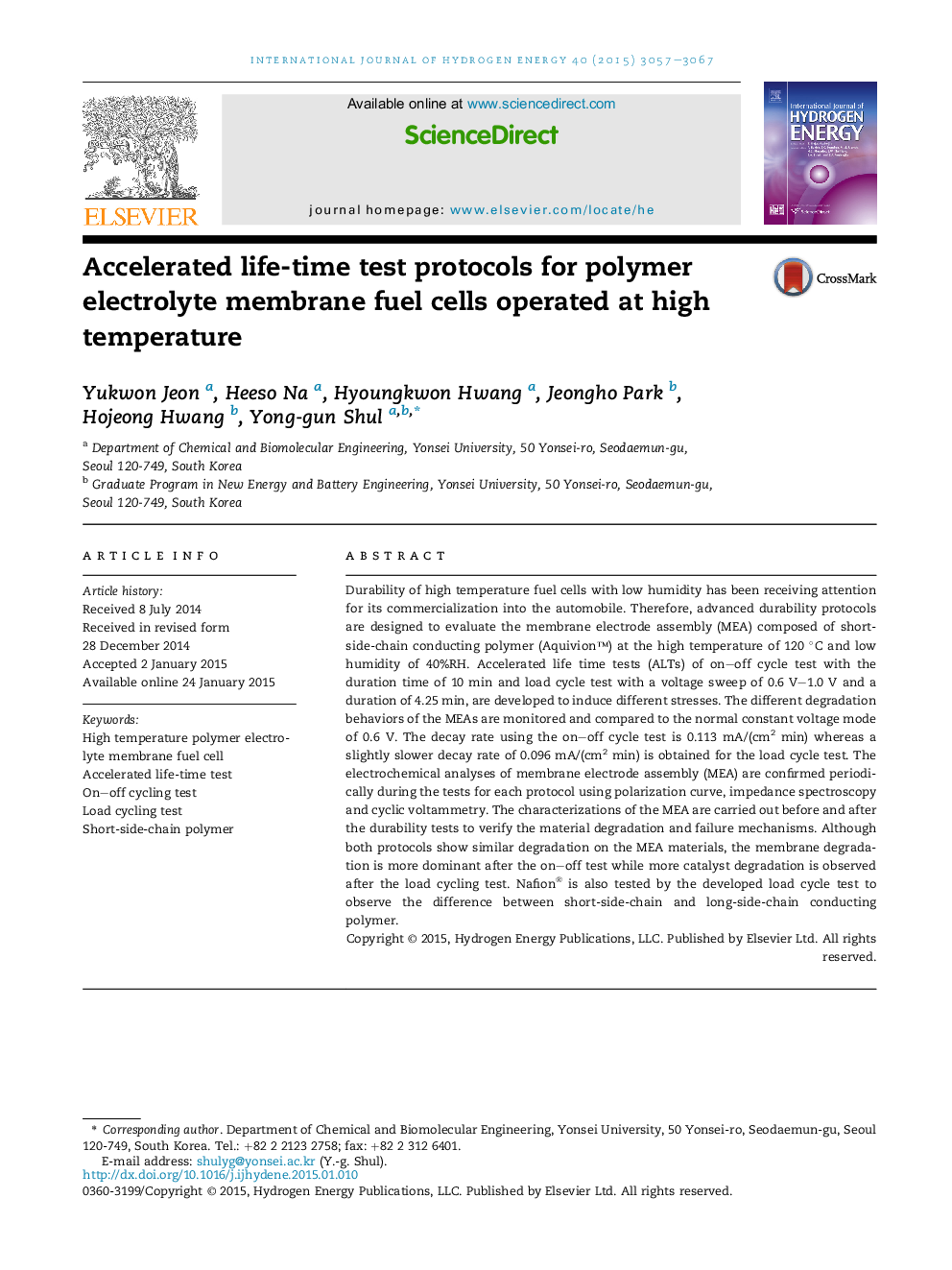| Article ID | Journal | Published Year | Pages | File Type |
|---|---|---|---|---|
| 7716193 | International Journal of Hydrogen Energy | 2015 | 11 Pages |
Abstract
Durability of high temperature fuel cells with low humidity has been receiving attention for its commercialization into the automobile. Therefore, advanced durability protocols are designed to evaluate the membrane electrode assembly (MEA) composed of short-side-chain conducting polymer (Aquivionâ¢) at the high temperature of 120 °C and low humidity of 40%RH. Accelerated life time tests (ALTs) of on-off cycle test with the duration time of 10 min and load cycle test with a voltage sweep of 0.6 V-1.0 V and a duration of 4.25 min, are developed to induce different stresses. The different degradation behaviors of the MEAs are monitored and compared to the normal constant voltage mode of 0.6 V. The decay rate using the on-off cycle test is 0.113 mA/(cm2 min) whereas a slightly slower decay rate of 0.096 mA/(cm2 min) is obtained for the load cycle test. The electrochemical analyses of membrane electrode assembly (MEA) are confirmed periodically during the tests for each protocol using polarization curve, impedance spectroscopy and cyclic voltammetry. The characterizations of the MEA are carried out before and after the durability tests to verify the material degradation and failure mechanisms. Although both protocols show similar degradation on the MEA materials, the membrane degradation is more dominant after the on-off test while more catalyst degradation is observed after the load cycling test. Nafion® is also tested by the developed load cycle test to observe the difference between short-side-chain and long-side-chain conducting polymer.
Related Topics
Physical Sciences and Engineering
Chemistry
Electrochemistry
Authors
Yukwon Jeon, Heeso Na, Hyoungkwon Hwang, Jeongho Park, Hojeong Hwang, Yong-gun Shul,
